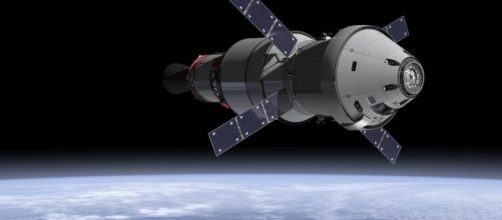IEEE Spectrum discusses a new debate that has arisen among scientists over the question of sending people to explore other worlds such as the Moon and Mars. The discussion is a twist on the ancient humans vs. robots debate that was actually resolved by a British Royal Astronomical Society study in 2004 in favor of people. The twist argument is that sending robots to the surface of a planet that is teleoperated by humans in orbit will be cheaper than sending people but just as effective as the human element is still present. The proposition has a number of flaws.
Is it really harder to sustain humans on a planet’s surface than in orbit?
The idea that people can be maintained in orbit around a planet than on its surface is rather dubious on close examination. Astronauts will certainly be subjected to the Long Term effects microgravity with all that implies. They will also be more vulnerable to radiation without access to the kind of shielding that soil on a planet’s surface would provide. The surfaces of the Moon and Mars provides access to resources such as water ice that would have to be shipped to a spacecraft in orbit. In the long term, it is likely easier and cheaper to sustain a crew of astronauts on the surface of the moon or Mars than in orbit, allegedly safe.
What about the inspiration of seeing human beings on the surface?
The adage that robots don’t get ticker tape parades applies here. As anyone who was alive and of age on the night of July 20, 1969, can relate, seeing human beings, emissaries from Earth, on the surface of another world is an experience that can never be matched. The intangible benefits of such an event in the form of inspiration cannot be cast aside easily.
People will go to other worlds to live
The final argument against relying solely on teleoperated robots is that people are going to go to the moon and Mars not just to explore, but to live. Elon Musk and Stephen Hawking have suggested that the long-term survival of human civilization depends on people spreading out into space and living on other worlds.
That is not accomplished by keeping people off the moon and Mars.
The usefulness of teleoperated robots
All of those objections do not argue against the value of teleoperated robots as supplements to humans. Robots can go to places where it might be too dangerous for space-suited astronauts, at least initially. They can be used for mundane tasks around a lunar base or Mars colony such as construction or maintenance. But there is nothing that can substitute for human explorers, hands on and on the scene.


